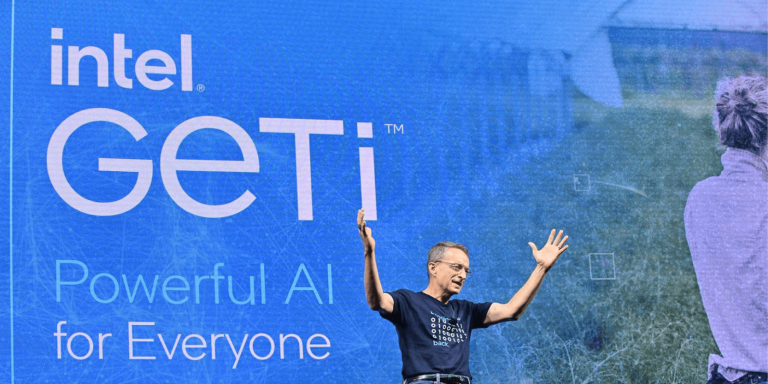
INTEL announced last May that it was working on a computer vision software platform: Sonoma Creek. At Intel Innovation 2022 in San Jose, California, the chipmaker introduced its renamed Intel Geti platform and a new version of its OpenVINO toolkit. While simplifying the training of AI models for computer vision, Intel also wants to boost sales of its chips.
Computer vision models use AI to predict and extract valuable information from images or videos. This market is growing rapidly whether in the health sector, transportation, businesses, smart cities, retail… According to Intel, only half of the projects go into production due to high cost, limited resources, siloed work environments and inefficient processes that result in poor quality and unsustainable models.
Intel Geti, a collaborative platform
Members of different teams can work together on a single platform for data collection, data labeling, model selection, training and optimization, and AI model deployment.
Intel Geti trains computer vision models with as few as 20 to 30 photos or a video, using PyTorch and TensorFlow.
The graphical interface allows team members with little or no AI experience to participate in the design of these models: drawing features, annotation wizards or object detection wizards thus simplify drag-and-drop training.
Adam Burns, vice president and director of AI development tools in the Network and Edge (NEX) group at Intel, explains:
“Intel Geti is a computer system vision AI platform that enables anyone in the enterprise to quickly develop AI designs that improve service innovation and digital improvement. We understand the value of AI and computer vision in the enterprise and we also understand the development barriers to adoption.”
A platform already experienced in the healthcare and construction industries
Intel Geti was not announced until late September, but more than 30 Intel partners have participated in the platform’s early access program.
Adam Burns cites the example of the Royal Brompton Hospital in the United Kingdom, where clinicians are using Intel Geti to help with their research into rare respiratory diseases. Without any AI expertise, he says, the Royal Brompton team is able to train AI models as they would a human research team member to analyze research data.
He states:
“This solution can help significantly improve early diagnosis and treatment options for patients with severe respiratory diseases like cystic fibrosis.”
The second early use example, also in the UK, given by Adam Burns, is from Sensing Feeling, a visual analytics provider: Intel Geti enabled them to develop a solution to monitor edge analysis and improve safety for construction workers.
He states:
“Using the computer vision model created by Intel Geti, their solution can detect when heavy equipment or machinery is in dangerous proximity to other equipment or personnel.”
The OpenVINO toolkit
OpenVINO (Open Visual Inference & Neural Network Optimization) is a toolkit designed to accelerate the development of high-performance computer vision and deep learning inference applications at the edge.
According to Adam Burns, OpenVINO and Intel Geti are complementary technologies addressing different AI modeling needs, he states:
“Enterprise users can download images and quickly create computer vision models with Intel Geti, and then deploy those models using OpenVINO at scale running on Intel hardware. Intel Geti can generate an optimized, ready-to-deploy OpenVINO model at the touch of a button, saving additional optimization steps.”
The company announced version 2022.2 of its OpenVINO toolkit, which supports the Intel GPU Flex Series data center processors launched in late August.
Adam Burns concludes:
“With OpenVINO and now Intel Geti, we have continued to try to make AI accessible to decision makers and developers within the enterprise. Together, these two products enable the rapid development and deployment of computer vision models.”
Translated from INTEL rend la vision par ordinateur plus accessible avec Intel Geti et OpenVINO 2022.2









